#British Empire
Text
my ancestors would be so disappointed if they knew im simping over british people.
#desi tag#desi#desi tumblr#the marauders#harry potter marauders#the marauders era#marauders era#marauders#marauders fandom#british empire#india#pakistan#bangladesh
21 notes
·
View notes
Text
17/12/23 this masterlist has been completely, vetted, revamped and reformatted with free access to all reading and viewing material. It will be updated and edited periodically so please try and reblog the original post if you're able.
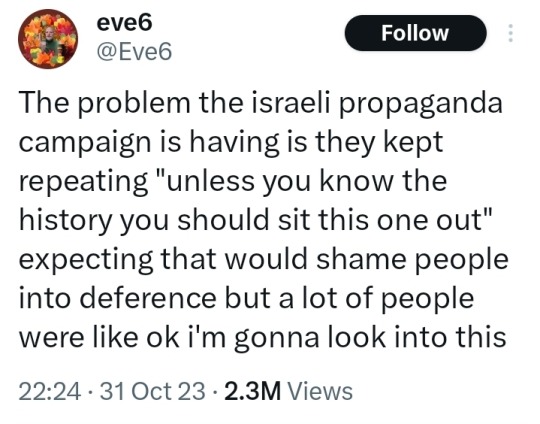
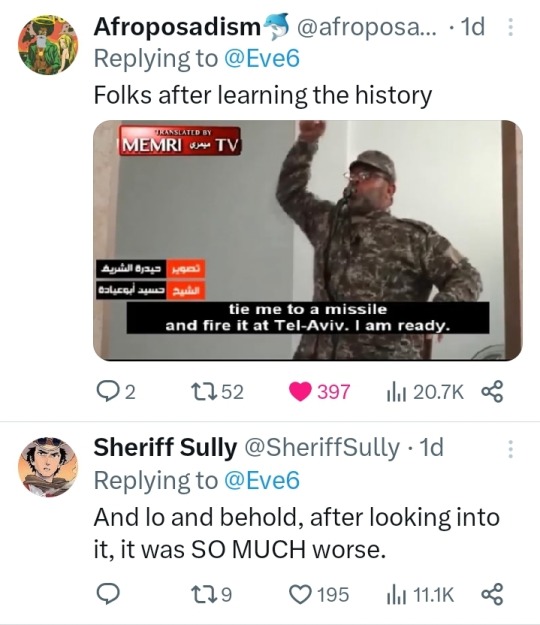

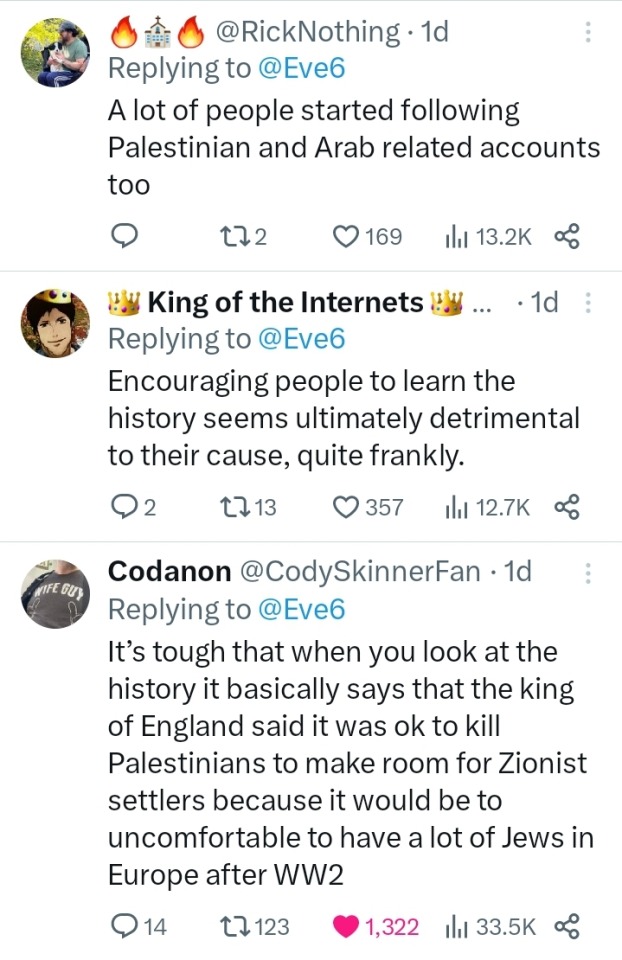
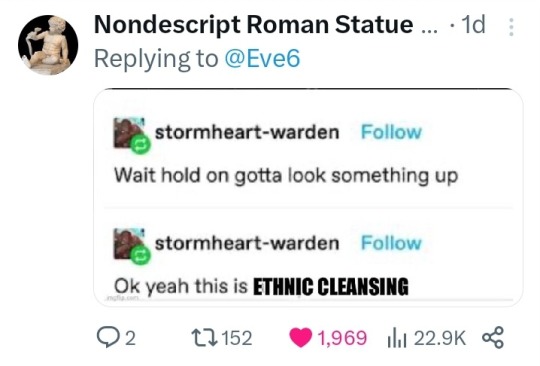
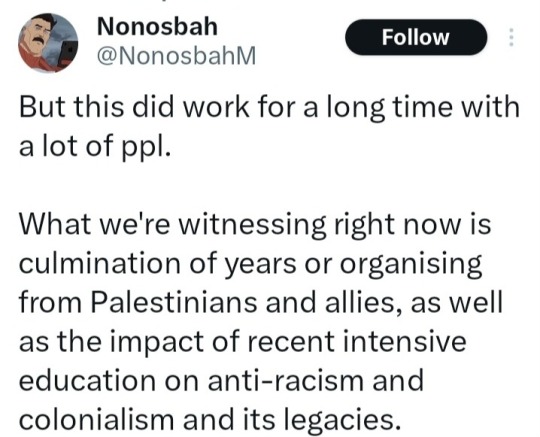
The Big Damn List Of Stuff They Said You Didn't Know
(Yes, it's a lot. Just choose your preferred medium and then pick one.)
Podcasts
Backgrounders and Quick Facts
Interactive Maps
Teach-Out Resources
Reading Material (free)
Films and Documentaries (free)
Non-Governmental Organizations
Social Media
How You Can Help
Podcasts
Cocktails & Capitalism: The Story of Palestine Part 1, Part 3
It Could Happen Here: The Cheapest Land is Bought with Blood, Part 2, The Balfour Declaration
Citations Needed: Media narratives and consent manufacturing around Israel-Palestine and the Gaza Siege
The Deprogram: Free Palestine, ft. decolonizatepalestine.com.
Backgrounders and Quick Facts
The Palestine Academy: Palestine 101
Institute for Middle East Understanding: Explainers and Quick Facts
Interactive Maps
Visualizing Palestine
Teach-Out Resources
1) Cambridge UCU and Pal Society
Palestine 101
Intro to Palestine Film + Art + Literature
Resources for Organising and Facilitating)
2) The Jadaliya YouTube Channel of the Arab Studies Institute
Gaza in Context Teach-in series
War on Palestine podcast
Updates and Discussions of news with co-editors Noura Erakat and Mouin Rabbani.
3) The Palestine Directory
History (virtual tours, digital archives, The Palestine Oral History Project, Documenting Palestine, Queering Palestine)
Cultural History (Palestine Open Maps, Overdue Books Zine, Palestine Poster Project)
Contemporary Voices in the Arts
Get Involved: NGOs and campaigns to help and support.
3) PalQuest Interactive Encyclopedia of the Palestine Question.
4) The Palestine Remix by Al Jazeera
Books and Articles
Free reading material
My Gdrive of Palestine/Decolonization Literature (nearly all the books recommended below + books from other recommended lists)
Five free eBooks by Verso
Three Free eBooks on Palestine by Haymarket
LGBT Activist Scott Long's Google Drive of Palestine Freedom Struggle Resources
Recommended Reading List
Academic Books
Edward Said (1979) The Question of Palestine, Random House
Ilan Pappé (2002)(ed) The Israel/Palestine Question, Routledge
Ilan Pappé (2006) The Ethnic Cleansing of Palestine, OneWorld Publications
Ilan Pappé (2011) The Forgotten Palestinians: A History of the Palestinians in Israel, Yale University Press
Ilan Pappé (2015) The Idea of Israel: A History of Power and Knowledge, Verso Books
Ilan Pappé (2017) The Biggest Prison On Earth: A History Of The Occupied Territories, OneWorld Publications
Ilan Pappé (2022) A History of Modern Palestine, Cambridge University Press
Rosemary Sayigh (2007) The Palestinians: From Peasants to Revolutionaries, Bloomsbury
Andrew Ross (2019) Stone Men: the Palestinians who Built Israel, Verso Books
Rashid Khalidi (2020) The Hundred Years’ War on Palestine: A History of Settler Colonialism and Resistance 1917–2017
Ariella Azoulay (2011) From Palestine to Israel: A Photographic Record of Destruction and State Formation, 1947-1950, Pluto Press
Ariella Azoulay and Adi Ophir (2012) The One-State Condition: Occupation and Democracy in Israel/Palestine, Stanford University Press.
Jeff Halper (2010) An Israeli in Palestine: Resisting Dispossession, Redeeming Israel, Pluto Press
Jeff Halper (2015) War Against the People: Israel, the Palestinians and Global Pacification
Jeff Halper (2021) Decolonizing Israel, Liberating Palestine: Zionism, Settler Colonialism, and the Case for One Democratic State, Pluto Press
Anthony Loewenstein (2023) The Palestine Laboratory: How Israel exports the Technology of Occupation around the World
Noura Erakat (2019) Justice for Some: Law and the Question of Palestine, Stanford University Press
Neve Gordon (2008) Israel’s Occupation, University of California Press
Joseph Massad (2006) The Persistence of the Palestinian Question: Essays on Zionism and the Palestinians, Routledge
Memoirs
Edward Said (1986) After the Last Sky: Palestine Lives, Columbia University PEdward Saidress
Edward Said (2000) Out of Place; A Memoir, First Vintage Books
Mourid Barghouti (2005) I saw Ramallah, Bloomsbury
Hatim Kanaaneh (2008) A Doctor in Galilee: The Life and Struggle of a Palestinian in Israel, Pluto Press
Raja Shehadeh (2008) Palestinian Walks: Into a Vanishing Landscape, Profile Books
Ghada Karmi (2009) In Search of Fatima: A Palestinian Story, Verso Books
Vittorio Arrigoni (2010) Gaza Stay Human, Kube Publishing
Ramzy Baroud (2010) My Father Was a Freedom Fighter: Gaza's Untold Story, Pluto Press
Izzeldin Abuelaish (2011) I Shall Not Hate: A Gaza Doctor’s Journey on the Road to Peace and Human Dignity, Bloomsbury
Atef Abu Saif (2015) The Drone Eats with Me: A Gaza Diary, Beacon Press
Anthologies
Voices from Gaza - Insaniyyat (The Society of Palestinian Anthropologists)
Letters From Gaza • Protean Magazine
Salma Khadra Jayyusi (1992) Anthology of Modern Palestinian Literature, Columbia University Press
ASHTAR Theatre (2010) The Gaza Monologues
Refaat Alreer (ed) (2014) Gaza Writes Back, Just World Books
Refaat Alreer, Laila El-Haddad (eds) (2015) Gaza Unsilenced, Just World Books
Cate Malek and Mateo Hoke (eds)(2015) Palestine Speaks: Narrative of Life under Occupation, Verso Books
Jehad Abusalim, Jennifer Bing (eds) (2022) Light in Gaza: Writings Born of Fire, Haymarket Books
Short Story Collections
Ghassan Kanafani, Hilary Kilpatrick (trans) (1968) Men in the Sun and Other Palestinian Stories, Lynne Rienner Publishers
Ghassan Kanafani, Barbara Harlow, Karen E. Riley (trans) (2000) Palestine’s Children: Returning to Haifa and Other Stories, Lynne Rienner Publishers
Atef Abu Saif (2014) The Book of Gaza: A City in Short Fiction, Comma Press
Samira Azzam, Ranya Abdelrahman (trans) (2022) Out Of Time: The Collected Short Stories of Samira Azzam
Sonia Sulaiman (2023) Muneera and the Moon; Stories Inspired by Palestinian Folklore
Essay Collections
Edward W. Said (2000) Reflections on Exile and Other Essays, Harvard University Press
Salim Tamari (2008) Mountain against the Sea: Essays on Palestinian Society and Culture, University of California Press
Fatma Kassem (2011) Palestinian Women: Narratives, histories and gendered memory, Bloombsbury
Ramzy Baroud (2019) These Chains Will Be Broken: Palestinian Stories of Struggle and Defiance in Israeli Prisons, Clarity Press
Novels
Sahar Khalifeh (1976) Wild Thorns, Saqi Books
Liyana Badr (1993) A Balcony over the Fakihani, Interlink Books
Hala Alyan (2017) Salt Houses, Harper Books
Susan Abulhawa (2011) Mornings in Jenin, Bloomsbury
Susan Abulhawa (2020) Against the Loveless World, Bloomsbury
Graphic novels
Joe Sacco (2001) Palestine
Joe Sacco (2010) Footnotes in Gaza
Naji al-Ali (2009) A Child in Palestine, Verso Books
Mohammad Sabaaneh (2021) Power Born of Dreams: My Story is Palestine, Street Noise Book*
Poetry
Fady Joudah (2008) The Earth in the Attic, Sheridan Books,
Ghassan Zaqtan, Fady Joudah (trans) (2012) Like a Straw Bird It Follows Me and Other Poems, Yale University Press
Hala Alyan (2013) Atrium: Poems, Three Rooms Press*
Mohammed El-Kurd (2021) Rifqa, Haymarket Books
Mosab Abu Toha (2022) Things You May Find Hidden in My Ear: Poems from Gaza, City Lights Publishers
Tawfiq Zayyad (2023) We Are Here to Stay, Smokestack Books*
The Works of Mahmoud Darwish
Poems
Rafeef Ziadah (2011) We Teach Life, Sir
Nasser Rabah (2022) In the Endless War
Refaat Alareer (2011) If I Must Die
Hiba Abu Nada (2023) I Grant You Refuge/ Not Just Passing
[All books except the ones starred are available in my gdrive. I'm adding more each day. But please try and buy whatever you're able or borrow from the library. Most should be available in the discounted Free Palestine Reading List by Pluto Press, Verso and Haymarket Books.]
Human Rights Reports & Documents
Information on current International Court of Justice case on ‘Legal Consequences arising from the Policies and Practices of Israel in the Occupied Palestinian Territory, including East Jerusalem’
UN Commission of Inquiry Report 2022
UN Special Rapporteur Report on Apartheid 2022
Amnesty International Report on Apartheid 2022
Human Rights Watch Report on Apartheid 2021
Report of the United Nations Fact-Finding Mission on the Gaza Conflict’ 2009 (‘The Goldstone Report’)
Advisory Opinion on the Legal Consequences of the Construction of a Wall in the Occupied Palestinian Territory, International Court of Justice, 9 July 2004
Films
Documentaries
Jenin, Jenin (2003) dir. Mohammed Bakri
Massacre (2005) dir. Monica Borgmann, Lokman Slim, Hermann Theissen
Slingshot HipHop (2008) dir. Jackie Reem Salloum
Waltz with Bashir (2008) dir. Ari Folman † (also on Amazon Prime)
Tears of Gaza (2010) dir. Vibeke Løkkeberg (also on Amazon Prime)
5 Broken Cameras (2011) dir. Emad Burnat (also on Amazon Prime)
The Gatekeepers (2012) dir. Dror Moreh (also on Amazon Prime)
The Great Book Robbery (2012) | Al Jazeera English
Al Nakba (2013) | Al Jazeera (5-episode docu-series)
The Village Under the Forest (2013) dir. Mark J. Kaplan
Where Should The Birds Fly (2013) dir. Fida Qishta
Naila and the Uprising (2017) (also on Amazon Prime)
GAZA (2019) dir. Andrew McConnell and Garry Keane
Gaza Fights For Freedom (2019) dir. Abby Martin
Little Palestine: Diary Of A Siege (2021) dir. Abdallah Al Khatib
Palestine 1920: The Other Side of the Palestinian Story (2021) | Al Jazeera World Documentary
Gaza Fights Back (2021) | MintPress News Original Documentary | dir. Dan Cohen
Innocence (2022) dir. Guy Davidi
Short Films
Fatenah (2009) dir. Ahmad Habash
Gaza-London (2009) dir. Dina Hamdan
Condom Lead (2013) dir. Tarzan Nasser, Arab Nasser
OBAIDA (2019) | Defence for Children Palestine
Theatrical Films
Divine Intervention (2002) | dir. Elia Suleiman (also on Netflix)
Paradise Now (2005) dir Hany Abu-Assad (also on Amazon Prime)
Lemon Tree (2008) (choose auto translate for English subs) (also on Amazon Prime)
It Must Be Heaven (2009) | dir. Elia Suleiman †
The Promise (2010) mini-series dir. Peter Kosminsky (Part 1, Part 2, Part 3, Part 4)
Habibi (2011)* dir. Susan Youssef
Omar (2013)* dir. Hany Abu-Assad †
3000 Nights (2015)* dir. Mai Masri
Foxtrot (2017) dir. Samuel Maoz (also on Amazon Prime)
The Time that Remains (2019) dir. Elia Suleiman †
Gaza Mon Amour (2020) dir. Tarzan Nasser, Arab Nasser †
The Viewing Booth (2020) dir. Ra'anan Alexandrowicz (on Amazon Prime and Apple TV)
Farha (2021)* | dir. Darin J. Sallam
Palestine Film Institute Archive
All links are for free viewing. The ones marked with a star (*) can be found on Netflix, while the ones marked † can be downloaded for free from my Mega account.
If you find Guy Davidi's Innocence anywhere please let me know, I can't find it for streaming or download even to rent or buy.
In 2018, BDS urged Netflix to dump Fauda, a series created by former members of IOF death squads that legitimizes and promotes racist violence and war crimes, to no avail. Please warn others to not give this series any views. BDS has not called for a boycott of Netflix. ]
Planning to link two separate posts here listing all the books in my drive and all the films I couldn't include here. Check back for updates.
NGOs
The Boycott, Divestment, Sanctions (BDS) Movement
Medical Aid for Palestinians
Euro-Mediterranean Human Rights Monitor
Palestine Defence for Children International
Palestinian Feminist Collective
Al-Shabaka: The Palestinian Policy Network
Addameer Prisoner Support and Human Rights Association
Institute for Palestine Studies
Al Haq
Artists for Palestine
The Palestine Museum
Jewish Currents
B’Tselem
DAWN
Social Media
Palestnians on Tumblr
@el-shab-hussein
@killyfromblame
@apollos-olives
@fairuzfan
@palipunk
@sar-soor
@nabulsi
@ibtisams
@wearenotjustnumbers2
@90-ghost (is in Gaza right now. Please donate to his GFM and boost it.)
@tamarrud
Allies and advocates (not Palestinian)
@bloglikeanegyptian beautiful posts that read like op-eds
@vyorei daily news roundups
@luthienne resistance through prose
@decolonize-the-left scoop on the US political plans and impacts
@feluka
(Please don't expect any of these blogs to be completely devoted to Palestine allyship; they do post regularly about it but they're still personal blogs and post whatever else they feel like. Do not harrass them.)
Gaza journalists
Motaz Azaiza IG: @motaz_azaiza | Twitter: @azaizamotaz9 | TikTok: _motaz.azaiza (left Gaza as of Jan 23)
Bisan Owda IG and TikTok: wizard_bisan1 | Twitter: @wizardbisan
Saleh Aljafarawi IG: @saleh_aljafarawi | Twitter: @S_Aljafarawi | TikTok: @saleh_aljafarawi97
Plestia Alaqad IG: @byplestia | TikTok: @plestiaaqad (left Gaza)
Wael Al-Dahdouh IG: @wael_eldahdouh | Twitter: @WaelDahdouh (left Gaza as of Jan 13)
Hind Khoudary IG: @hindkhoudary | Twitter: @Hind_Gaza
Ismail Jood IG and TikTok: @ismail.jood (announced end of coverage on Jan 25)
Yara Eid IG: @eid_yara | Twitter: @yaraeid_
Eye on Palestine IG: @eye.on.palestine | Twitter: @EyeonPalestine | TikTok: @eyes.on.palestine
Muhammad Shehada Twitter: @muhammadshehad2
(Edit: even though some journos have evacuated, the footage up to the end of their reporting is up on their social media, and they're also doing urgent fundraisers to get their families and friends to safety. Please donate or share their posts.)
News organisations
The Electronic Intifada Twitter: @intifada | IG: @electronicintifada
Quds News Network Twitter and Telegram: @QudsNen | IG: @qudsn (Arabic)
Times of Gaza IG: @timesofgaza | Twitter: @Timesofgaza | Telegram: @TIMESOFGAZA
The Palestine Chronicle Twitter: @PalestineChron | IG: @palestinechron | @palestinechronicle
Al-Jazeera Twitter: @AJEnglish | IG and TikTok: @aljazeeraenglish, @ajplus
Middle East Eye IG and TikTok: @middleeasteye | Twitter: @MiddleEastEye
Democracy Now Twitter and IG: @democracynow TikTok: @democracynow.org
Haaretz* Twitter: @Haaretz | IG: haaretzcom
Mondoweiss IG and TikTok: @mondoweiss | Twitter: @Mondoweiss
The Intercept Twitter and IG: @theintercept
MintPress Twitter: @MintPressNews | IG: mintpress
Novara Media Twitter and IG: @novaramedia
Truthout Twitter and IG: @truthout
[*Please note that Haaretz is an Israeli Liberal Zionist newspaper and heavily propagandized against Palestine. It's included here only as a Zionist critic of the Israeli government and IDF from within Israel.]
Palestnians on Other Social Media
Mouin Rabbani: Middle East analyst specializing in the Arab-Israeli conflict and Palestinian affairs. Twitter: @MouinRabbani
Noura Erakat: Legal scholar, human rights attorney, specialising in Israeli–Palestinian conflict. Twitter: @4noura | IG: @nouraerakat | (http://www.nouraerakat.com/)
Hebh Jamal: Journalist in Germany. IG and Twitter: @hebh_jamal
Ghada Sasa: PhD candidate in International Relations, green colonialism, and Islam in Canada. Twitter: @sasa_ghada | IG: @ghadasasa48
Taleed El Sabawi: Assistant professor of law and researcher in public health. Twitter: @el_sabawi | IG
Lexi Alexander: Filmmaker and activist. Twitter: @LexiAlex | IG: @lexialexander1
Mariam Barghouti: Writer, blogger, researcher, and journalist. Twitter: @MariamBarghouti | IG: @mariambarghouti
Rasha Abdulhadi: Queer poet, author and cultural organizer. Twitter: @rashaabdulhadi
Mohammed el-Kurd: Writer and activist from Jerusalem. IG: @mohammedelkurd | Twitter: @m7mdkurd
Ramy Abdu: Founder and Chairman of the Euro-Mediterranean Human Rights Monitor. Twitter: @RamyAbdu
Subhi: Founder of The Palestine Academy website. IG: @sbeih.jpg |TikTok @iamsbeih | Twitter: @iamsbeih
Allies
Lowkey (Kareem Dennis): Rapper, activist, video and podcast host for MintPress. Twitter: @LowkeyOnline IG: @lowkeyonline
Francesca Albanese: UN Special Rapporteur on the Occupied Territories. Twitter: @FranceskAlbs
Sana Saeed: Journalist and media critic, host and senior producer at Al-Jazeera Plus. IG: @sanaface | Twitter: @SanaSaeed
Shailja Patel: Poet, playwright, activist, founding member of Kenyans For Peace, Truth and Justice. Twitter: @shailjapatel
Jairo I. Fúnez-Flores: Researcher in curriculum studies, decolonial theory, social movements. Twitter: @Jairo_I_Funez
Jack Dodson: Journalist and Filmmaker. Twitter: @JackDodson IG: @jdodson4
Imani Barbarin: Writer, public speaker, and disability rights activist. IG: @crutches_and_spice | Twitter: @Imani_Barbarin | TikTok: @crutches_and_spice
Jewish Allies
Katie Halper: US comedian, writer, filmmaker, podcaster, and political commentator. IG and Twitter: @kthalps
Amanda Gelender: Writer. Twitter: @agelender | (https://agelender.medium.com/)
Yoav Litvin: Jerusalem-born Writer and Photographer. IG and Twitter: @nookyelur | (yoavlitvin.com)
Alana Lentin: Professor of Cultural and Social Analysis at Western Sydney University. Twitter: @alanalentin
Gideon Levy: anti-Zionist Israeli journalist and activist. Twitter: @gideonle
How You Can Help Palestine
How to be an Ally 101
URGENT‼️📢: Global Strike Guide
If any links are broken let me know. Or pull up the current post to check whether it's fixed.
"Knowledge is Israel's worst enemy. Awareness is Israel's most hated and feared foe. That's why Israel bombs a university: it wants to kill openness and determination to refuse living under injustice and racism."
— Dr. Refaat Alareer, (martyred Dec 6, 2023)
From River To The Sea Palestine Will Be Free 🇵🇸🇵🇸🇵🇸
-----
Edit 1: took the first video down because turns out the animator is a terf and it links to her blog. Really sorry for any distress.
Edit 2: All recommended readings + Haymarket recommendations + essential decolonization texts have been uploaded to my linked gdrive. I will adding more periodically. Please do buy or check them out from the library if possible, but this post was made for and by poor and gatekept Global South bitches like me.
Some have complained about the memes being disrespectful. You're actually legally obligated to make fun of Israeli propaganda and Zionists. I don't make the rules.
Edit 3: "The river to the sea" does not mean the expulsion of Jews from Palestine. Believing that is genocide apologia.
Edit 4: Gazans have specifically asked us to put every effort into pushing for a ceasefire instead of donations. "Raising humanitarian aid" is a grift Western governments are pushing right now to deflect from the fact that they're sending billions to Israel to keep carpet bombing Gazans. As long as the blockades are still in place there will never be enough aid for two million people. (UPDATE: PLEASE DONATE to the Gazan's GoFundMe fundraisers to help them buy food and get out of Rafah into Egypt. E-SIMs, food and medical supplies are also essential. Please donate to the orgs linked in the How You Can Help. Go on the strikes. DO NOT STOP PROTESTING.)
Edit 5: Google drive link for academic books folder has been fixed. Also have added a ton of resources to all the other folders so please check them out.
Edit 6: Added interactive maps, Jadaliya channel, and masterlists of donation links and protest support and of factsheets.
The twitter accounts I reposted as it was given to me and I just now realized it had too many Israeli voices and almost none of the Palestinians I'm following, so it's being edited. Check back for more. I also removed sources like Jewish Voices of Peace and Breaking the Silence that do good work but have come under fair criticism from Palestinians.
Edit 7: Complete reformatting
Edit 8: Complete revamping of the social media section. It now reflects my own following list.
Edit 9: removed some more problematic people from the allies list. Remember that the 2SS is a grift that's used to normalize violence and occupation, kids. Supporting the one-state solution is lowest possible bar for allyship. It's "Free Palestine" not "Free half of Palestine and hope Israel doesn't go right back to killing them".
Edit 10: added The Palestine Directory + Al Jazeera documentary + Addameer. This "100 links per post" thing sucks.
Edit 11: more documentaries and films
Edit 12: reformatted reading list
Edit 13: had to remove @palipunk's masterlist to add another podcast. It's their pinned post and has more resources Palestinian culture and crafts if you want to check it out
#free palestine#palestine resources#palestine reading list#decolonization#israel palestine conflict#israel palestine war#british empire#american imperialism#apartheid#social justice#middle east history#MENA#arab history#anti zionism#palestinian art#palestinian history#palestinian culture#palestinian genocide#al nakba#ethnic cleansing#war crimes#racism#imperialism#colonialism#british colonialism#knee of huss#ask to tag#Youtube
72K notes
·
View notes
Text
The British Empire is collapsing before our eyes in real time <3
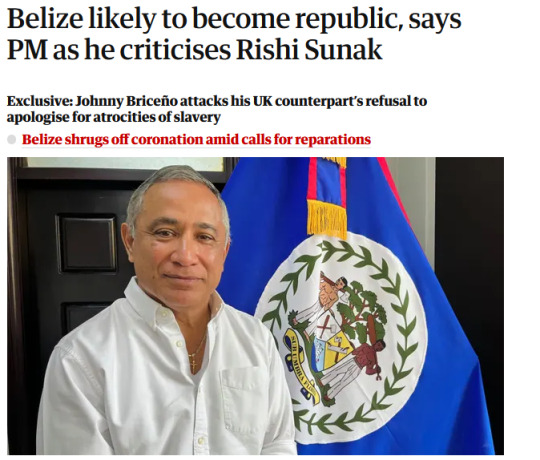
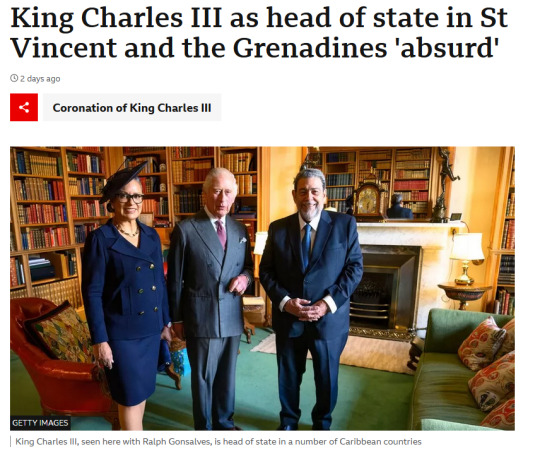
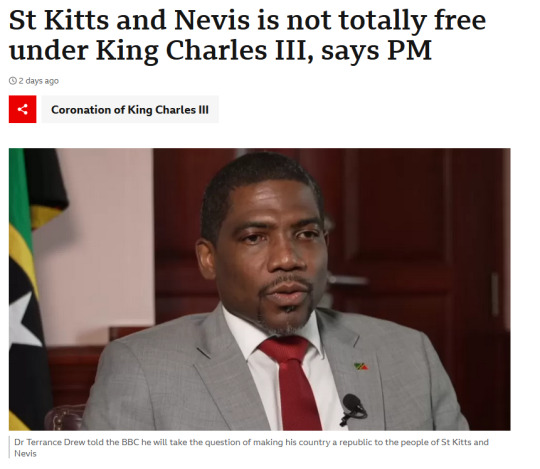

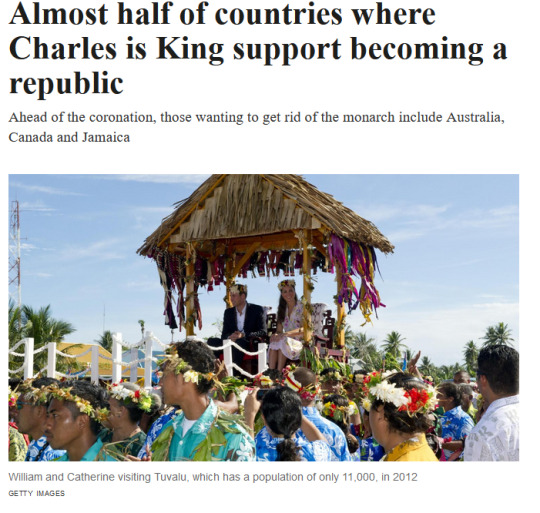
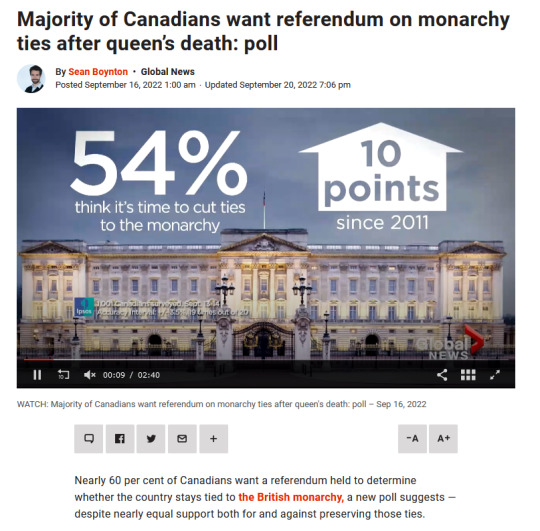
Critical support to Charles in his efforts to destroy the empire :) /s
28K notes
·
View notes
Text
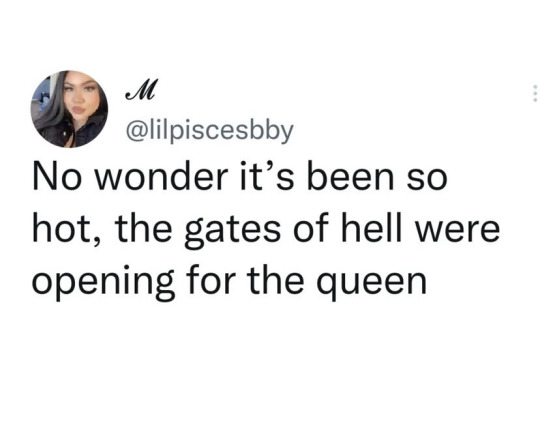
#queen elizabeth#hell#climate change#solidarity#british empire#colonialism#gates of hell#pearly gates#princess diana#queen of england#scotland#Scotland is free#🏴#🇮🇪#braveheart#🦀🦀🦀
15K notes
·
View notes
Text
OK, as an Indian person and ESPECIALLY as a Scottish person I have to say this.
The current Palestinian Genocide (let's call a spade a spade) and lack of response is an unambiguously, direct result of British Colonialism.
Palestine was given/promised/whatever word you want to use to describe it to Israel by the British Empire to whom it "belonged" as a colony.
Everything that happened thereafter, the Nakba, every invasion, every injustice is a result of that colonial attitude from which Israel was born.
Everywhere the British Empire has been it has sewn chaos and promoted the abuse of human rights as it left. It has happened in India, it happened in Nigeria, South Africa, Cameroon and Australia.
The reason for such a lax UK governmental response is because if they acknowledge what's going on is fucked they have to take responsibility for so much more. By leaving these countries originally the UK has "washed their hands of it."
I want to make this extremely clear.
Britain's hands will NEVER be clean
The British Empire has committed the greatest atrocities known to mankind and the British Government does not want to acknowledge that.
Israel has been built from these imperial attitudes, has repeatedly and continually committed war crimes and human rights abuses and governments just... don't care
It's actually insane and we need to recognise the root of these humanitarian calamities and hold our government accountable.
Write to your MPs, your MSPs, your MSs make your voice heard in whatever way that you can! Your voice may seem weak but it is so incredibly powerful if enough people speak up, if enough people make sure that the government never forgets about these things we can make REAL CHANGE. The link below will allow for you to find your government representative be that N.Ireland Assembly Scottish, Welsh or UK Parliament as well as their emails.
https://www.theyworkforyou.com/
Tell them how horrible things are in Gaza, tell them about Israel's repeated and continuous mistreatment of the Palestinian people, tell them how the UK cannot continue to plug our ears and ignore the fallout of our past. Just say something!
960 notes
·
View notes
Text
My alternate universe fantasy colonial Hong Kong is more authoritarian and just as racist but less homophobic than in real life, should I change that?
@floatyhands asked:
I’m a Hongkonger working on a magical alternate universe dystopia set in what is basically British colonial Hong Kong in the late 1920s. My main character is a young upper middle-class Eurasian bisexual man.
I plan to keep the colony’s historical racial hierarchy in this universe, but I also want the fantasy quirks to mean that unlike in real life history, homosexuality was either recently decriminalized, or that the laws are barely enforced, because my boy deserves a break. Still, the institutions are quite homophobic, and this relative tolerance might not last. Meanwhile, due to other divergences (e.g. eldritch horrors, also the government’s even worse mishandling of the 1922 Seamen's Strike and the 1925 Canton-Hong Kong Strike), the colonial administration is a lot more authoritarian than it was in real history. This growing authoritarianism is not exclusive to the colony, and is part of a larger global trend in this universe.
I realize these worldbuilding decisions above may whitewash colonialism, or come off as choosing to ignore one colonial oppression in favor of exaggerating another. Is there any advice as to how I can address this issue? (Maybe I could have my character get away by bribing the cops, though institutional corruption is more associated with the 1960s?) Thank you!
Historical Precedent for Imperialistic Gay Rights
There is a recently-published book about this topic that might actually interest you: Racism And The Making of Gay Rights by Laurie Marhoefer (note: I have yet to read it, it’s on my list). It essentially describes how the modern gay rights movement was built from colonialism and imperialism.
The book covers Magnus Hirschfeld, a German sexologist in the early 1900s, and (one of) his lover(s), Li Shiu Tong, who he met in British Shanghai. Magnus is generally considered to have laid the groundwork for a lot of gay rights, and his research via the Institut für Sexualwissenschaft was a target of Nazi book-burnings, but he was working with imperial governments in an era where the British Empire was still everywhere.
Considering they both ended up speaking to multiple world leaders about natural human sexual variation both in terms of intersex issues and sexual attraction, your time period really isn’t that far off for people beginning to be slightly more open-minded—while also being deeply imperialist in other ways.
The thing about this particular time period is homosexuality as we know it was recently coming into play, starting with the trial of Oscar Wilde and the rise of Nazism. But between those two is a pretty wildly fluctuating gap of attitudes.
Oscar Wilde’s trial is generally considered the period where gay people, specifically men who loved men, started becoming a group to be disliked for disrupting social order. It was very public, very scandalous, and his fall from grace is one of the things that drove so many gay and/or queer men underground. It also helped produce some of the extremely queercoded classical literature of the Victorian and Edwardian eras (ex: Dracula), because so many writers were exploring what it meant to be seen as such negative forces. A lot of people hated Oscar Wilde for bringing the concept to such a public discussion point, when being discreet had been so important.
But come the 1920s, people were beginning to wonder if being gay was that bad, and Mangus Hirschfeld managed to do a world tour of speaking come the 1930s, before all of that was derailed by wwii. He (and/or Li Shiu Tong) were writing papers that were getting published and sent to various health departments about how being gay wasn’t an illness, and more just an “alternative” way of loving others.
This was also the era of Boston Marriages where wealthy single women lived together as partners (I’m sure there’s an mlm-equivalent but I cannot remember or find it). People were a lot less likely to care if you kept things discreet, so there might be less day to day homophobia than one would expect. Romantic friendships were everywhere, and were considered the ideal—the amount of affection you could express to your same-sex best friend was far above what is socially tolerable now.
Kaz Rowe has a lot of videos with cited bibliographies about various queer disasters [affectionate] of the late 1800s/early 1900s, not to mention a lot of other cultural oddities of the Victorian era (and how many of those attitudes have carried into modern day) so you can start to get the proper terms to look it up for yourself.
I know there’s a certain… mistrust of specifically queer media analysts on YouTube in the current. Well. Plagiarism/fact-creation scandal (if you don’t know about the fact-creation, check out Todd in the Shadows). I recommend Kaz because they have citations on screen and in the description that aren’t whole-cloth ripped off from wikipedia’s citation list (they’ve also been published via Getty Publications, a museum press).
For audio-preferring people (hi), a video is more accessible than text, and sometimes the exposure to stuff that’s able to pull exact terms can finally get you the resources you need. If text is more accessible, just jump to the description box/transcript and have fun. Consider them and their work a starting place, not a professor.
There is always a vulnerability in learning things, because we can never outrun our own confirmation bias and we always have limited time to chase down facts and sources—we can only do our best and be open to finding facts that disprove what we researched prior.
Colonialism’s Popularity Problem
Something about colonialism that I’ve rarely discussed is how some colonial empires actually “allow” certain types of “deviance” if that deviance will temporarily serve its ends. Namely, when colonialism needs to expand its territory, either from landing in a new area or having recently messed up and needing to re-charm the population.
By that I mean: if a fascist group is struggling to maintain popularity, it will often conditionally open its doors to all walks of life in order to capture a greater market. It will also pay its spokespeople for the privilege of serving their ends, often very well. Authoritarians know the power of having the token supporter from a marginalized group on payroll: it both opens you up directly to that person’s identity, and sways the moderates towards going “well they allow [person/group] so they can’t be that bad, and I prefer them.”
Like it or not, any marginalized group can have its fascist members, sometimes even masquerading as the progressives. Being marginalized does not automatically equate to not wanting fascism, because people tend to want fascist leaders they agree with instead of democracy and coalition building. People can also think that certain people are exaggerating the horrors of colonialism, because it doesn’t happen to good people, and look, they accept their friends who are good people, so they’re fine.
A dominant fascist group can absolutely use this to their advantage in order to gain more foot soldiers, which then increases their raw numbers, which puts them in enough power they can stop caring about opening their ranks, and only then do they turn on their “deviant” members. By the time they turn, it’s usually too late, and there’s often a lot of feelings of betrayal because the spokesperson (and those who liked them) thought they were accepted, instead of just used.
You said it yourself that this colonial government is even stricter than the historical equivalent—which could mean it needs some sort of leverage to maintain its popularity. “Allowing” gay people to be some variation of themselves would be an ideal solution to this, but it would come with a bunch of conditions. What those conditions are I couldn’t tell you—that’s for your own imagination, based off what this group’s ideal is, but some suggestions are “follow the traditional dating/friendship norms”, “have their own gender identity slightly to the left of the cis ideal”, and/or “pretend to never actually be dating but everyone knows and pretends to not care so long as they don’t out themselves”—that would signal to the reader that this is deeply conditional and about to all come apart.
It would, however, mean your poor boy is less likely to get a break, because he would be policed to be the “acceptable kind of gay” that the colonial government is currently tolerating (not unlike the way the States claims to support white cis same-sex couples in the suburbs but not bipoc queer-trans people in polycules). It also provides a more salient angle for this colonial government to come crashing down, if that’s the way this narrative goes.
Colonial governments are often looking for scapegoats; if gay people aren’t the current one, then they’d be offered a lot more freedom just to improve the public image of those in power. You have the opportunity to have the strikers be the current scapegoats, which would take the heat off many other groups—including those hit by homophobia.
In Conclusion
Personally, I’d take a more “gays for Trump” attitude about the colonialism and their apparent “lack” of homophobia—they’re just trying to regain popularity after mishandling a major scandal, and the gay people will be on the outs soon enough.
You could also take the more nuanced approach and see how imperialism shaped modern gay rights and just fast-track that in your time period, to give it the right flavour of imperialism. A lot of BIPOC lgbtqa+ people will tell you the modern gay rights movement is assimilationalist, colonialist, and other flavours of ick, so that angle is viable.
You can also make something that looks more accepting to the modern eye by leaning heavily on romantic friendships that encouraged people waxing poetic for their “best friends”, keeping the “lovers” part deeply on the down low, but is still restrictive and people just don’t talk about it in public unless it’s in euphemisms or among other same-sex-attracted people because there’s nothing wrong with loving your best friend, you just can’t go off and claim you’re a couple like a heterosexual couple is.
Either way, you’re not sanitizing colonialism inherently by having there be less modern-recognized homophobia in this deeply authoritarian setting. You just need to add some guard rails on it so that, sure, your character might be fine if he behaves, but there are still “deviants” that the government will not accept.
Because that’s, in the end, one of the core tenants that makes a government colonial: its acceptance of groups is frequently based on how closely you follow the rules and police others for not following them, and anyone who isn’t their ideal person will be on the outs eventually. But that doesn’t mean they can’t have a facade of pretending those rules are totally going to include people who are to the left of those ideals, if those people fit in every other ideal, or you’re safe only if you keep it quiet.
~ Leigh
#colonialism#colonization#worldbuilding#alternate history#history#lgbt#china#hong kong#british empire#ask
527 notes
·
View notes
Text
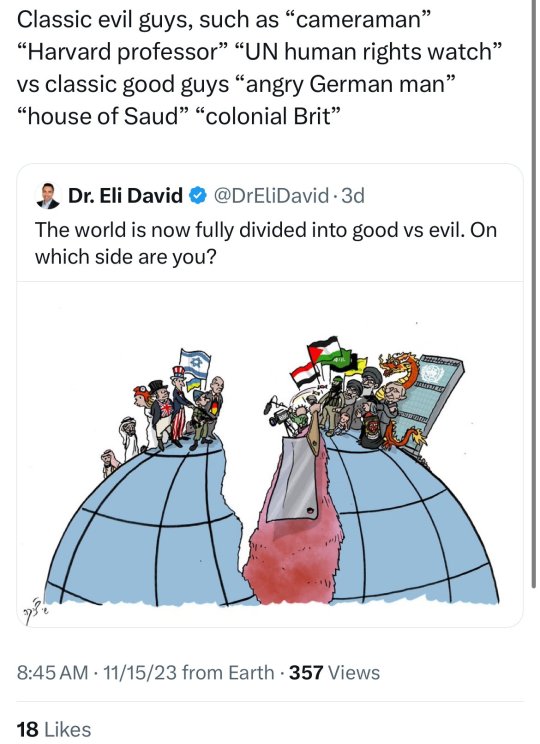
474 notes
·
View notes
Text
An innovation that propelled Britain to become the world’s leading iron exporter during the Industrial Revolution was appropriated from an 18th-century Jamaican foundry, historical records suggest.
The Cort process, which allowed wrought iron to be mass-produced from scrap iron for the first time, has long been attributed to the British financier turned ironmaster Henry Cort. It helped launch Britain as an economic superpower and transformed the face of the country with “iron palaces”, including Crystal Palace, Kew Gardens’ Temperate House and the arches at St Pancras train station.
Now, an analysis of correspondence, shipping records and contemporary newspaper reports reveals the innovation was first developed by 76 black Jamaican metallurgists at an ironworks near Morant Bay, Jamaica. Many of these metalworkers were enslaved people trafficked from west and central Africa, which had thriving iron-working industries at the time.
Dr Jenny Bulstrode, a lecturer in history of science and technology at University College London (UCL) and author of the paper, said: “This innovation kicks off Britain as a major iron producer and … was one of the most important innovations in the making of the modern world.”
The technique was patented by Cort in the 1780s and he is widely credited as the inventor, with the Times lauding him as “father of the iron trade” after his death. The latest research presents a different narrative, suggesting Cort shipped his machinery – and the fully fledged innovation – to Portsmouth from a Jamaican foundry that was forcibly shut down.
[...]
The paper, published in the journal History and Technology, traces how Cort learned of the Jamaican ironworks from a visiting cousin, a West Indies ship’s master who regularly transported “prizes” – vessels, cargo and equipment seized through military action – from Jamaica to England. Just months later, the British government placed Jamaica under military law and ordered the ironworks to be destroyed, claiming it could be used by rebels to convert scrap metal into weapons to overthrow colonial rule.
“The story here is Britain closing down, through military force, competition,” said Bulstrode.
The machinery was acquired by Cort and shipped to Portsmouth, where he patented the innovation. Five years later, Cort was discovered to have embezzled vast sums from navy wages and the patents were confiscated and made public, allowing widespread adoption in British ironworks.
Bulstrode hopes to challenge existing narratives of innovation. “If you ask people about the model of an innovator, they think of Elon Musk or some old white guy in a lab coat,” she said. “They don’t think of black people, enslaved, in Jamaica in the 18th century.”
849 notes
·
View notes
Text
Why Gandhi is a piece of shit and you should hate him.
Mohandas Karamchand Gandhi has been established in our history as a "Mahatma" which means "great soul"
This man is anything but that.
He is EVERYWHERE. He's on our currency, he's revered as a hero who saved India, and we have a mandatory holiday on October 2nd in honor of him.
If you didn't know, now you're going to get to know why he was a horrible human being. Let's begin.
This man managed to fool people Martin Luther King and Nelson Mandela (among many others) into thinking he was a good person.
Here is some of the shit he's done:
In 1903, when Gandhi was in South Africa, he wrote that white people there should be "the predominating race." He also said black people "are troublesome, very dirty, and live like animals."
Refused to have sex with his wife for the last 38 years of their marriage. He felt that in order to test his commitment to celibacy, he would have beautiful young women (including his own great niece) lie next to him naked through the night. His wife, whom he described as looking like a "meek cow" was no longer desirable enough to be a solid test.
Believed that Indian women who were raped lost their value as a human.
During Gandhi's time as a dissident in South Africa, he discovered a male youth had been harassing two of his female followers. Gandhi responded by personally cutting the girls' hair off, to ensure the "sinner's eye" was "sterilised". Gandhi boasted of the incident in his writings, pushing the message to all Indians that women should carry responsibility for sexual attacks upon them.
He argued that fathers could be justified in killing daughters who had been sexually assaulted for the sake of family and community honour.
Gandhi also waged a war against contraceptives, labelling Indian women who used them as whores.
He believed menstruation was a "manifestation of the distortion of a woman's soul by her sexuality".
On 6th April 1947, he gave a speech where he said, “ If the Muslims are out there slicing through Hindu masses to wipe out the Hindu race, the Hindus should say nothing and peacefully accept death”.
He hated the great Hindu rulers, especially Shivaji Maharaj. To please the Muslims, he banned the book named ShivBhaavani which correctly depicted Islam’s intolerance and fierce fundamentalism spread by it.
Refused his wife life-saving medication (for religious reasons), but those religious reasons all of a sudden no longer applied to him when he was in a similar position.
Started a fast unto death when Ambedkar asked for separate electorates for Dalits.
Gandhi left his ailing father on his deathbed, to sleep with his wife. The child born out of this copulation died in infancy. According to Gandhi, the death of this infant was the result of this evil karma.
Gandhi, even when he claimed to be the angel of non-violence, made no efforts to prevent the British from deploying Indian troops at various locations during World War II.
Kashmir was invaded by Pakistan in 1947, the brutal Pakistani army committed heinous crimes against Kashmiri Pandits including mass rape and mass killings consequently many Pandits were forced to flee to Delhi and other places. In one incident Pandits took refuge in an abandoned mosque in Delhi. Infuriated, Gandhi threatened to fast to death if the Pandits didn't leave. The Pandits were slaughtered in a communal riot as soon as they abandoned the mosques.
Criticized the Jews for defending themselves against the Holocaust because he insisted that they should have committed public mass suicide in order to "shame" the Germans instead of fighting back. His exact words were, "But the Jews should have offered themselves to the butcher's knife. They should have thrown themselves into the sea from the cliffs. As it is, they succumbed anyway in their millions."
And this is all from a simple Internet search compiled here. I wonder what else is hiding if I do a deep dive.
Thank you for coming to my TED talk.
#hinduphobia#hindublr#desiblr#antisemitism#history#india#gandhi#can you guys tell i hate him#indian history#british empire#tw rape#tw assault
290 notes
·
View notes
Text
#talkin#tik tok#the humanity archive#jermaine fowler#racism#colonialism#colonization#operation legacy#britian#🇰🇪#kenya#🇬🇧#british empire#east africa protectorate
1K notes
·
View notes
Text

Sherlock Holmes (2009)
#2009#film#movie#literature#Sherlock Holmes#Guy Ritchie#Jude Law#Dr. John Watson#Rachel McAdams#Irene Adler#Mark Strong#Lord Henry Blackwood#221B Baker Street#London#England#British Empire#Sir Arthur Conan Doyle#Arthur Conan Doyle
161 notes
·
View notes
Text

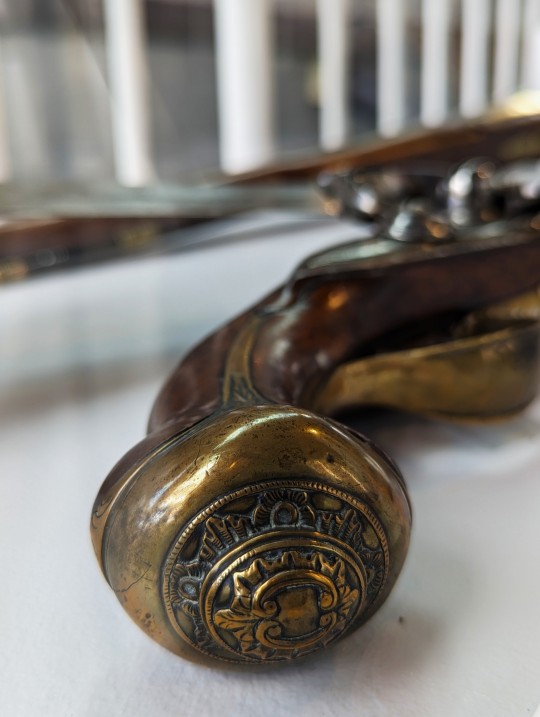
Royal Navy Issue Boarding Pistol from the British Empire dated between 1791 - 1795 on display at the Vancouver Maritime Museum in Canada
Explorers like Captain George Vancouver, who charted and claimed what is now British Columbia in Canada, were also officers in the Royal Navy. The ships and crews were armed and were ready and trained to use violence against Native peoples or rival empires.
Pistols with long barrels, like this one, were commonly used by seamen were as ones with shorter barrels were issued to officers officers. These pistols were cheaper than the ones produced for the army and were mainly use for close combat with a heavy handle which could be used as a bludgeoning weapon.
Photographs taken by myself 2023
#naval history#18th century#british empire#canada#canadian#georgian#hanoverian#age of sail#maritime museum#vancouver#barbucomedie
209 notes
·
View notes
Text

Marx would've been on the side of Palestine. Facts.
#united front#palestine#free palestine#karl marx#communism#marxism#india#british empire#israeli apartheid
183 notes
·
View notes
Text

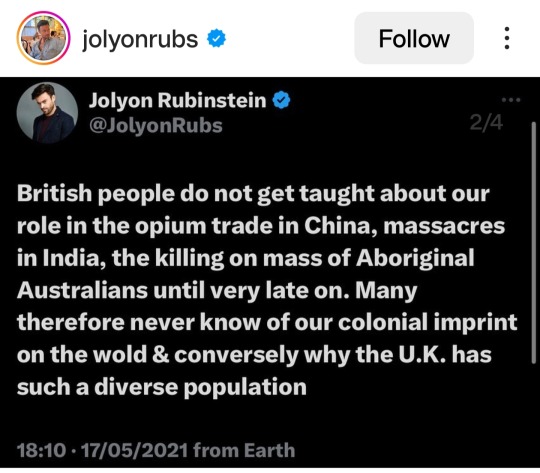


252 notes
·
View notes
Text

#ana bolena#Anne Boleyn#Queen of England#digital art#digital illustration#drawing#artists on tumblr#digital drawing#Boleyn#british history#british empire#monarchy#royalty
82 notes
·
View notes
Text
Will reblog anyone that provides captions. I great list of beautiful jewels that the British Empire stole from the countries they colonized and who they need to go the fuck back to.
-fae
2K notes
·
View notes